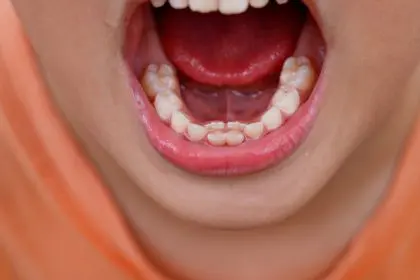High blood pressure, often called the “silent killer,” impacts millions of people worldwide without noticeable symptoms. If left unmanaged, it can lead to severe health complications like heart disease, stroke and kidney issues. However, it’s not all doom and gloom; the good news is that making some fundamental lifestyle changes can significantly reduce the risk of developing high blood pressure. In this article, we’ll explore seven effective lifestyle shifts to help prevent high blood pressure and support overall well-being.
1. Maintain a healthy diet
One of the most impactful changes you can make to prevent high blood pressure is adopting a balanced, nutritious diet. A heart-healthy diet, often referred to as the DASH diet (Dietary Approaches to Stop Hypertension), emphasizes whole foods like fruits, vegetables, whole grains, lean proteins and low-fat dairy products.
- Fruits and vegetables: Incorporate a wide variety of colors and types to get an array of nutrients.
- Whole grains: Choose brown rice, oatmeal and whole-wheat pasta over refined grains.
- Healthy proteins: Opt for lean meats like poultry and fish, as well as plant-based proteins like beans and nuts.
- Low-sodium foods: Look for products labeled “low-sodium” and aim to use herbs and spices for flavor instead of salt.
Eating a diet rich in these foods helps regulate blood pressure by providing essential minerals like potassium, calcium and magnesium, which are known to support heart health and help maintain normal blood pressure levels. Reducing salt intake is particularly effective in preventing hypertension, as high sodium can lead to fluid retention and increased blood pressure.
2. Engage in regular physical activity
Regular exercise is a cornerstone of preventing high blood pressure. Consistent physical activity strengthens the heart, enabling it to pump blood more efficiently and reducing the force on the arteries.
- Cardio: Aim for at least 150 minutes of moderate-intensity aerobic exercise per week, such as brisk walking, cycling or swimming.
- Strength training: Include two days of strength training activities to enhance muscle tone and support cardiovascular health.
Not only does regular exercise help manage and lower blood pressure, but it also aids in maintaining a healthy weight, improving mood and boosting overall energy levels. Even simple daily activities like gardening, dancing or taking the stairs instead of the elevator can add up over time and contribute to lowering blood pressure.
3. Achieve and maintain a healthy weight
Being overweight or obese significantly increases the risk of developing high blood pressure. Excess weight forces the heart to work harder to circulate blood throughout the body, thereby increasing the pressure on the arteries.
- Monitor caloric intake: Be mindful of portion sizes and the caloric content of foods.
- Balanced meals: Combine proteins, healthy fats and whole grains to feel full and avoid overeating.
- Stay active: Regular physical activity can help burn calories and maintain a stable weight.
Even a modest weight loss of 5-10% of your body weight can have a noticeable impact on lowering blood pressure and improving heart health.
4. Limit alcohol consumption
While moderate alcohol consumption has been associated with some potential heart benefits, excessive drinking can elevate blood pressure and add extra calories to your diet, contributing to weight gain.
- Moderation is key: For men, limit alcohol intake to no more than two drinks a day, and for women, no more than one drink a day.
- Drink smart: Choose beverages low in sugar and calories, and alternate with water or sparkling water to stay hydrated.
Excessive drinking can interfere with the effectiveness of blood pressure medications and increase the risk of developing hypertension. Limiting alcohol not only supports blood pressure regulation but also promotes overall health and well-being.
5. Reduce stress and practice relaxation techniques
Chronic stress can contribute to high blood pressure by causing your body to release stress hormones, which increase heart rate and constrict blood vessels. Finding effective ways to manage stress is crucial for blood pressure prevention.
- Mindfulness meditation: Incorporates deep breathing and meditation to promote calmness and mental clarity.
- Progressive muscle relaxation: Alternately tense and relax different muscle groups to relieve physical tension.
- Exercise and yoga: Physical activities that combine movement with breath control help to ease stress and anxiety.
By incorporating these techniques into your daily routine, you can prevent spikes in blood pressure, improve mental clarity and enhance emotional well-being.
6. Cut down on caffeine
Although caffeine has numerous health benefits and is widely consumed through coffee, tea and energy drinks, its effects on blood pressure can be mixed. For some, caffeine causes a short but dramatic increase in blood pressure, even if they don’t have hypertension.
- Monitor intake: Pay attention to how much caffeine you’re consuming throughout the day.
- Opt for decaf or herbal tea: Consider choosing beverages without caffeine to reduce the impact on blood pressure.
- Gradual reduction: If you’re used to multiple caffeinated drinks a day, cut back slowly to avoid withdrawal symptoms.
If you’re concerned about how caffeine affects your blood pressure, try checking it within 30 minutes of consuming caffeine to see if there’s a noticeable increase.
7. Avoid smoking and limit exposure to secondhand smoke
Smoking is a significant risk factor for high blood pressure and cardiovascular disease. The nicotine in cigarettes raises blood pressure, tightens blood vessels and causes your heart to beat faster.
- Seek support: Consider counseling, support groups or talking with a healthcare professional to find the best approach for quitting.
- Nicotine replacement therapy: Options like nicotine patches, gums or medications can help manage withdrawal symptoms.
Exposure to secondhand smoke is also dangerous, as it can contribute to high blood pressure and heart disease. Limiting time in environments where smoking is prevalent and ensuring smoke-free spaces can further support your health.
Embracing a heart-healthy lifestyle
Preventing high blood pressure is not about making drastic changes overnight but rather adopting a series of manageable, consistent lifestyle shifts. From maintaining a balanced diet and staying physically active to reducing stress and avoiding tobacco, these seven habits form a holistic approach to not only keeping your blood pressure in check but also improving your overall quality of life. Small changes can yield big results, empowering you to take charge of your health, reduce your risk of heart disease and lead a more vibrant, energized life.
By embracing these lifestyle changes, you can pave the way for a healthier future, one choice at a time. Remember, prevention is key, and taking proactive steps today can protect your heart health for years to come.
This story was created using AI technology.
















